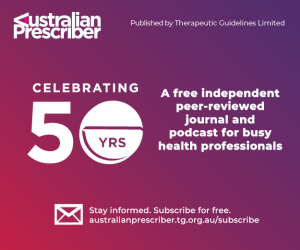Whilst the majority of health professionals who have the lawful right to prescribe, supply or administer medications do so as lawful custodians of these drugs, there are some whose conduct falls short of professional expectations.
This not only increases the risk to the public but also has the potential to damage the reputation of the professions and undermine the trust the community has in health professionals’ practice. For the practitioner there are serious personal and professional consequences as they face potential regulatory action and criminal liability.
In Pharmacy Board of Australia v Tran (Review and Regulation) [2021] VCAT 1249 (25 October 2021) the tribunal highlighted the importance of the role pharmacists have in the provision of healthcare in the community and in protecting public health. In their view the pharmacist does much more than merely following a script and dispense medications. Rather than take the script at face value the pharmacist is required to exercise independent judgement as to whether there is something about the script that could cause harm to the patient or the community. This is also a layer of protection from harm should the prescribing officer make a mistake or incorrectly prescribe medications.
As such they have a gate keeper role that also requires them to be vigilant in identifying drug seeking behaviour through scrutinising scripts to determine if they have been forged or altered and consider if the types and quantities of drugs sought raise cause for suspicion. Pharmacists also have an obligation to report such suspicions to the relevant health department for follow up and investigation.
In this case Tran admitted that rather than practice with such vigilance she ‘blindly followed’ the scripts presented by a manipulative patient over a period of three years and five months. During this time she provided this person a total of 52,368 tablets of codeine-containing analgesics over the course of 167 prescriptions which averaged out to 39 tablets a day. Tran acknowledged that it was apparent from the scripts in evidence that whilst they had been genuinely written by a doctor, they had been fraudulently altered with handwriting that attempted to mimic the original prescribing officers writing adding in Panadiene Forte and/or Valium. On multiple occasions she also supplied repeats that had not been authorised by the prescribing doctor. Tran was found guilty of professional misconduct, received a reprimand, a six month suspension and had conditions placed on her registration for when she returns to practice.
This finding came after her criminal trial in the Magistrates Court where she pled guilty to 10 charges in relation to 457 breaches of drugs, poisons and controlled substances laws and was fined $10,000 and ordered to pay $10,708 costs.
In another case the Health Complaints Commission in NSW found Dr Mohammadi guilty of unsatisfactory professional conduct and professional misconduct for prescribing excessive amounts of opioids, failing to properly assess patients, not identifying signs of drug addictive behaviour and failing to refer patients on who were in need of specialist care. Mohammadi claimed that he was able to determine if someone was drug addicted by looking into their eyes rather than looking at their behaviour although conceded that sometimes he did miss picking up the cues.
In one case he oversupplied fentanyl to a patient for 64 days, in addition to prescribing fentanyl to three patients for non-therapeutic reasons. He admitted having no experience in treating drug addicted patients acknowledging that he was too soft with them.
The tribunal noted that Mohammadi was remorseful and intended no harm, however, considered his conduct reckless with respect to the doses and quantities of drugs he supplied to the identified patients. They were satisfied that he knew some of the patients were drug seeking or drug dependent and wrongly thought he was treating their addiction. The tribunal is yet to deliver its orders (Vella J. 2021).
There have also been several recent cases where health practitioners have misappropriated drugs for their own use. One drug addicted pharmacist who was found guilty of altering prescriptions and possessing a trafficable quantity of Xanax was given a two year community correction order after he falsified patient supply records obtaining 33,250 Xanax pills. He was also found guilty of professional misconduct in the tribunal (Shapiro P). These cases serve as a reminder to all those custodians of medications of the need to ensure that professional standards of practice are maintained in this area and how we should all be vigilant in ensuring that proper prescribing, dispensing and administration of drugs is practiced across the professions.
References
Pharmacy Board of Australia v Tran (Review and Regulation) [2021] VCAT 1249 (25 October 2021)
Shapiro P. 2021. Methhead former Melbourne pharmacist William Trieu swindled 33,250 Xanax Alprazolam tablets. Herald Sun 15 November 2021.
Vella J, 2021. Auburn doctor Masoud Mohammadi guilty of professional misconduct. NT News 15 November 2021.
Author
An expert in the field of nursing and the law Associate Professor Linda Starr is in the School of Nursing and Midwifery at Flinders University in South Australia







